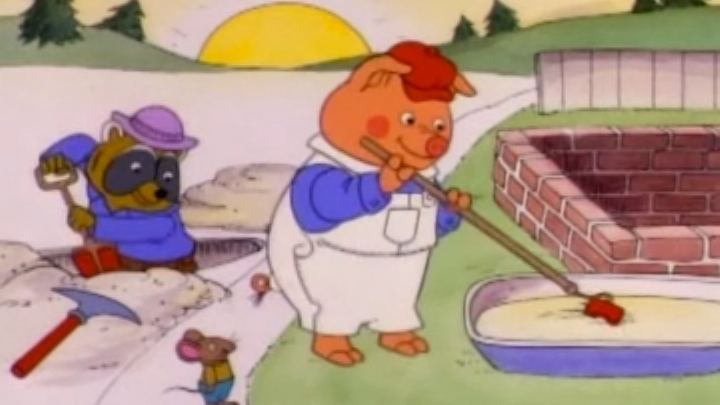Pigs and Mice Have the Lowliest Jobs in Richard Scarry’s Busytown

Job discrimination is so pervasive, it’s even an issue in the fictional utopia of Busytown.
Sociologist John Levi Martin combed through almost 300 children’s books—including Richard Scarry’s beloved What Do People Do All Day?—and found that certain kinds of anthropomorphized animals were consistently depicted as having less prestigious professions than others.
“Jobs that allow the occupant to exercise authority over others tend to be held by predatory animals (especially foxes), but never by ‘lower’ animals,” Dr. Steven Vallas writes of the study on the Sociological Images blog.
Mice, pigs, and other, less predatory creatures were frequently shown as working in service industry positions or engaging in manual labor. The poor pigs, in particular, seem almost picked-on: They make their bacon by doing construction, or working as street-cleaners, or selling meat. (Yikes.)
Pigs “are substantially over-represented in subordinate jobs ... where their overweight bodies and (judging from the plots of these books) congenital stupidity seems to ‘naturally’ equip them for subservient jobs,” Vallas notes.
At first blush, Martin’s findings might seem frivolous—but the social scientist argues that the consequences of these depictions reach far beyond Busytown’s borders. According to Martin, thanks to these fictional stereotypes, children learn at a very young age that inequality in the workplace is the natural order of things.
“In effect, Martin’s point is that there is a hidden language or code inscribed in children’s books, which teaches kids to view inequalities within the division of labor as a ‘natural fact of life’—that is, as a reflection of the inherent characteristics of the workers themselves,” Vallas concludes. “As adults, then, we are already predisposed to accept the hierarchical, caste-based system of labor that characterizes the American workplace.”
In Busytown’s defense, the folks carrying on Richard Scarry’s legacy have made an effort to change the way the animals’ genders are portrayed. Take this comparison of the 1963 edition of The Best Word Book Ever, with the 1991 version on the right:
Image credit: Alan Taylor via Flickr
Here’s to hoping the next dispatch from Busytown brings news of a pig physician or two.